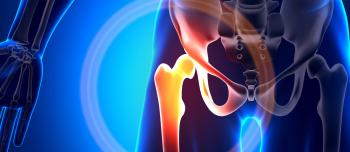Pfizer has announced positive topline results from their phase 3 clinical study of giroctocogene fitelparvovec, the company’s investigational hemophilia A gene therapy.
The clinical trial program, known as AFFINE, is evaluating the efficacy and safety of a single intravenous infusion of giroctocogene fitelparvovec in more than 60 adult (ages 18-64 years) participants with moderately severe to severe hemophilia A.
A primary focus for trial investigators is the therapy’s impact on annualized bleeding rate (ABR) through 15 months following treatment. The ABR reached through a single administration of giroctocogene fitelparvovec is being compared to the ABR achieved through six months of prior prophylaxis using factor VIII replacement therapy. They reported a statistically significant reduction in mean total ABR from 4.73 in the pre-gene therapy period, to 1.24 after treatment with giroctocogene fitelparvovec.
In terms of safety, Pfizer reported the therapy to be generally well tolerated. Serious adverse events were reported in 15 patients (20%), including 13 events related to treatment. These treatment-related adverse events were “generally resolved” in response to clinical management.
“For people living with hemophilia A, the physical and emotional impact of needing to prevent and treat bleeding episodes through frequent IV infusions or injections cannot be underestimated,” said Professor Andrew Leavitt MD, AFFINE lead investigator, Departments of Laboratory Medicine and Medicine Division of Hematology/Oncology Director, Adult Hemophilia Treatment Center, University of California, San Francisco, CA.
“I’m excited by the strength of these positive results from the AFFINE trial that show giroctocogene fitelparvovec was generally well tolerated and demonstrate the transformative potential of this gene therapy candidate to provide superior bleed protection compared with routine FVIII prophylaxis, while helping relieve the treatment burden for people living with hemophilia A,” added Levine.
Investigators are conducting an ongoing analysis of the full AFFINE study dataset and plan to present additional findings at upcoming medical meetings.
Source: Pfizer press release dated July 24, 2024





